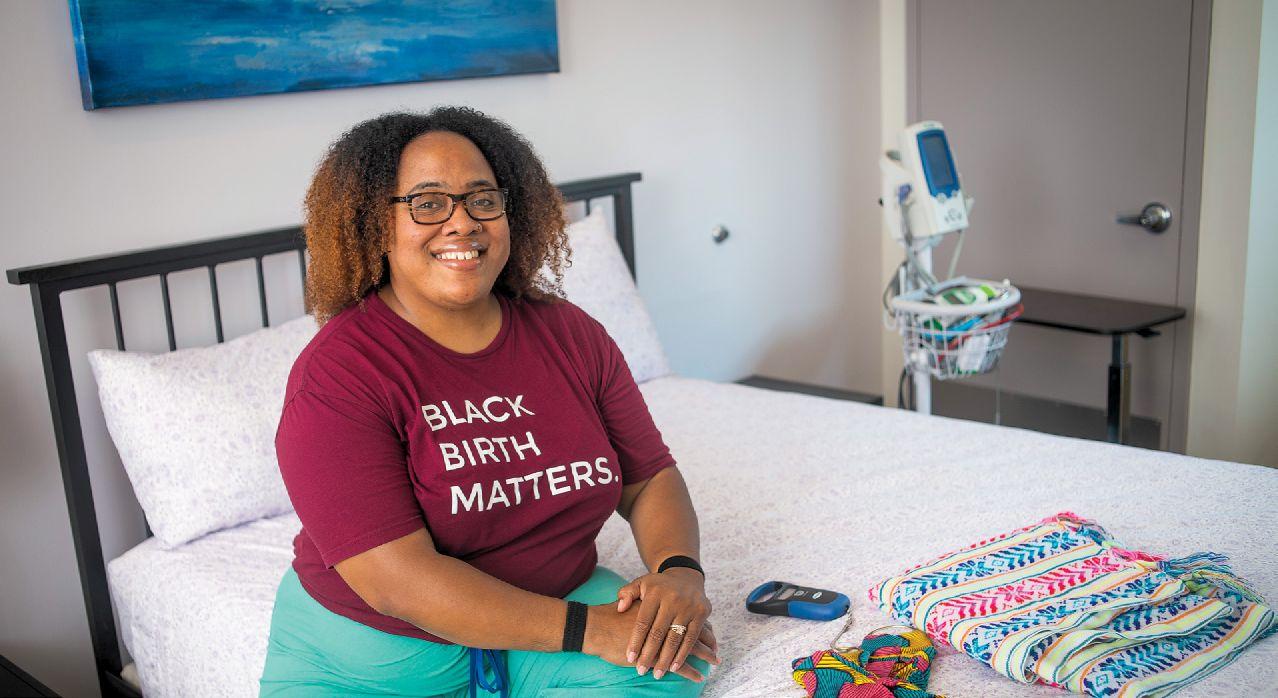
1 minute read
A LIFE-SAVING CALLING
Ebony Marcelle (NHS’05) says that midwives like herself play critical roles in the lives of Black women and their babies. She has dedicated herself to improving their health outcomes through both care and social justice.
Marcelle is an adjunct professor at Georgetown University School of Nursing & Health Studies and the director of midwifery at Community of Hope–Family Health and Birth Center, the only facility of its kind in the nation’s capital. The birth center, located in Ward 5, provides comprehensive services—including reproductive health care, dental examinations, primary and integrated behavioral health care, and housing assistance—and midwifery care for new and expectant mothers.
Advertisement
Marcelle’s “Aha!” career moment happened when speaking to her own midwife.
“She really stressed how midwifery is about women’s empowerment and trying to make sure that patients feel like informed consumers,” Marcelle recalls. “Most importantly, she listened.”
Not all women are afforded the right of being heard in health care, particularly during childbirth and delivery. The stakes are high for women who look like Marcelle; on a national scale, Black women are disproportionately impacted by high rates of maternal mortality and poor health outcomes, which are exacerbated by limited access to quality health care. In March 2019, Marcelle was appointed to DC’s Maternal Mortality Review
Committee to examine the challenges facing Black and brown mothers-to-be.
Addressing the needs of underserved Black women in DC who historically have a deep-seated distrust of health-care providers, Marcelle says she acts with intention and makes a concerted effort to hire people of color and rebuild trust for the Birth Center’s patients.
“It’s about creating a space where they can feel comfortable and see people that look like them,” she says. “To tackle the system, we have to stop blaming women for these poor outcomes.”
Originally from Southern California, Marcelle always knew she wanted to help bring babies into the world. However, at Georgetown she struggled to balance full-time work and classes and planned to exit until an anonymous donor stepped in. Because of Marcelle’s potential within the medical community, the donor offered her a monthly stipend so she could stop working and focus on her classes.
To this day, Marcelle says she doesn’t know who her angel donor was. As one of the few leading midwives in the District, she’s now paying it forward for women who truly need help.
“This is my calling, and the joy of being a midwife is fantastic. Even on my most tired days, I love catching a baby.”









